It will be some time till I can do a proper book review of this trilogy, so let me just jot down a few highlights. No major spoilers.
The Reading Experience
Sigrid Undset’s monumental trilogy was our choice for Norway for the Reading the World challenge. If you ever tackle long works, I highly recommend reading with a friend, as I did, as it really helps shoulder the journey of so many pages. The Penguin Deluxe Classics paperback (pictured) clocks in at 1124 pages, although you can also get the three books as individual volumes from Penguin. Like The Lord of the Rings, this is a story that reads more compellingly as one long narrative instead of a series, so plan on reading all three books, if you can.
According to my Goodreads metrics, we finished The Wreath in October 2020, The Wife in May 2021, and now The Cross in March 2023, for a grand total of 2.5 years, including extended breaks in-between books. The original publication date of these three books was about 1 year apart, from 1920 to 1922 (nearly 100 years ago to the date, how cool is that!). I enjoyed taking the breaks, but I also enjoyed picking it up again. It seems to be a good way to read this and certainly in line with how the original readers would have read it.
Undset would go on to win the Nobel Prize in 1928, largely for this particular work of hers. I mentioned this in my initial video review, but Undset and the translator Tiina Nunnally make the writing style very smooth. This is not the kind of historical fiction that drags on and on in verbose details, though nor is it mere fluff with a bit of historical trimming. It’s a very accessible piece of writing. More on that in a bit…
The Story of Kristin
This saga follows the life of a young girl named Kristin in medieval Norway, growing up under the wings of a loving father, a gloomy mother, and all the societal structures and expectations of the time period. In The Wreath, Kristin is caught between her impending arranged marriage and her attraction to the brash and seductive Erlend Nikulausson. The Wife and The Cross follow the outcomes of her choices in book I, including her troubled Catholic faith.
I will save an in-depth review of the plot for another time, but suffice it to say, while The Wreath had all the makings of a soap opera, books II & III actually got pretty good. I enjoyed seeing various characters being put to various tests and how they largely stayed consistent and true to themselves (for better and worse). In that sense, you can compare this to Somerset Maugham’s The Razor’s Edge, where the characters exhibit exquisite realism. But most will find more immediate parallels with Thomas Hardy’s work, where romance and tragedy are intermingled throughout the story.
Neither I nor my friend liked the characters in this trilogy. There was just one character I was fond of, and that one died rather quickly… But Undset does have a way of making you fascinated about these unpleasant people. (Again, echoes of Hardy.)
The Zeitgeist of Kristin
As historical fiction, Kristin Lavransdatter is one of the best I’ve read yet. Without losing its poetry and beauty, the book features a great many of the hardships and ills of the time period—disease, lice, and poverty, to name a few. It does a great job of depicting different social classes and different ways of, say, running an estate (e.g. Kristin’s Jorungaard vs Erlend’s Husaby). There is a wonderful sense of scale in this trilogy without ever overwhelming you… sometimes I did get confused by all the names mentioned, but the exposition was done in such a way that it made you relate to a character’s perspective, i.e. it felt like it was part of the story, not competing with it.
Religion plays a huge role in this novel, not just in terms of the setting but in terms of its effect on Kristin’s life and psyche. As a Christian myself, I had some serious issues with how certain aspects of Christianity were portrayed. There is a major plot twist in The Wreath that I don’t think was ever given full closure and made the redemption arc of the other books fall flat for me. I will have more to say about this later if I do a video review.
Is It Worth Reading?
What most interested me about Kristin Lavransdatter was the window onto agrarian society in the medieval era. I wrote a post on this a couple of years ago, and my thoughts after finishing the trilogy still stand. I enjoyed how Undset painted the beauty of this time and place—especially in the landscape—but did not shirk from showing its hardness and sometimes brutality. I was immersed in a dynastic, patriarchal way of living for over 1000 pages, with all its nuances and no sugar coating. This is largely a realist novel, portrayed from a woman’s perspective but always in such a way that it reflects the time period.
If you don’t know much about the 1300s (Norway or otherwise), this is a worthy read to stoke your interest. I’ll just say, I don’t think The Wreath is a good standalone novel—it simply sets the stage for the other two parts to shine. So if this interests you at all, buckle your seat belt and be ready to go on the full journey!




Leave a comment